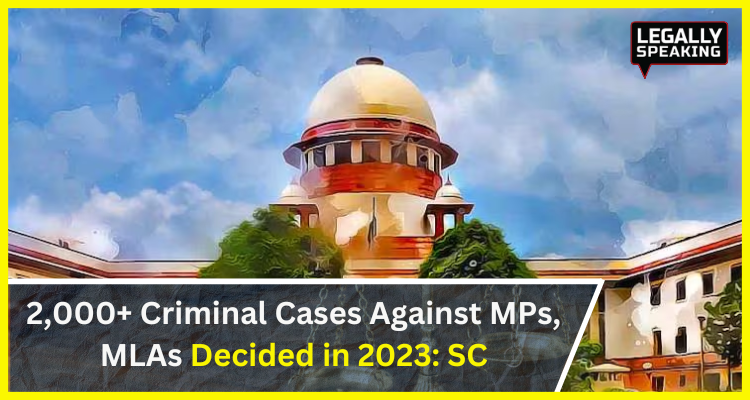
The Supreme Court has received information revealing that in 2023, special courts dedicated to handling criminal cases involving lawmakers, including Members of Parliament (MPs) and Members of Legislative Assembly (MLAs), resolved over 2,000 cases. During the same period, 1,746 new criminal cases were lodged against MPs/MLAs. As of January 1, 2024, a total of 4,474 cases remains pending. Additionally, around 501 candidates with criminal cases are participating in the Lok Sabha elections during the initial two phases.
Senior advocate Vijay Hansaria, acting as amicus curiae in a Public Interest Litigation (PIL) initiated by advocate Ashwini Upadhyay, has submitted an affidavit to the Supreme Court calling for expedited resolution of criminal cases involving lawmakers. The affidavit, filed in response to the PIL, highlights that 1,746 new criminal cases were registered against MPs/MLAs in 2023, with 4,474 cases still pending as of January 1, 2024.
An “amicus curiae,” meaning “friend of the court” in Latin, is someone who provides insights or expertise to assist the court’s decision-making process. The affidavit stresses the need for further directives to accelerate the adjudication of pending trials and enhance their investigation under strict monitoring by the respective high courts. It also notes that approximately 501 candidates with criminal cases are participating in the Lok Sabha elections during the initial two phases.
Referring to a report from the NGO ‘Association of Democratic Reforms for the Lok Sabha elections 2024 Phase I and Phase II,’ the affidavit states that out of 2,810 candidates, 501 (18 percent) have criminal cases against them, with 327 (12 percent) facing serious criminal charges punishable with imprisonment of 5 years or more. Similar statistics were observed during the 2019 Lok Sabha elections, with 19 percent of candidates facing criminal charges and 13 percent involved in serious criminal cases.
Given these findings, the affidavit emphasizes the necessity for the court to issue further directives to expedite the resolution of pending trials and investigations under strict supervision by the respective high courts. It also requests directives to establish a model website similar to the National Judicial Data Grid for real-time publication of information regarding the progress of trials involving lawmakers.
Furthermore, the affidavit urges special courts not to adjourn proceedings in such cases unless absolutely necessary. The Supreme Court has issued a series of instructions to high courts, district judges, and specialized courts handling cases involving lawmakers, ordering those criminal cases against members of Parliament, legislative assemblies, and legislative councils be prioritized.




